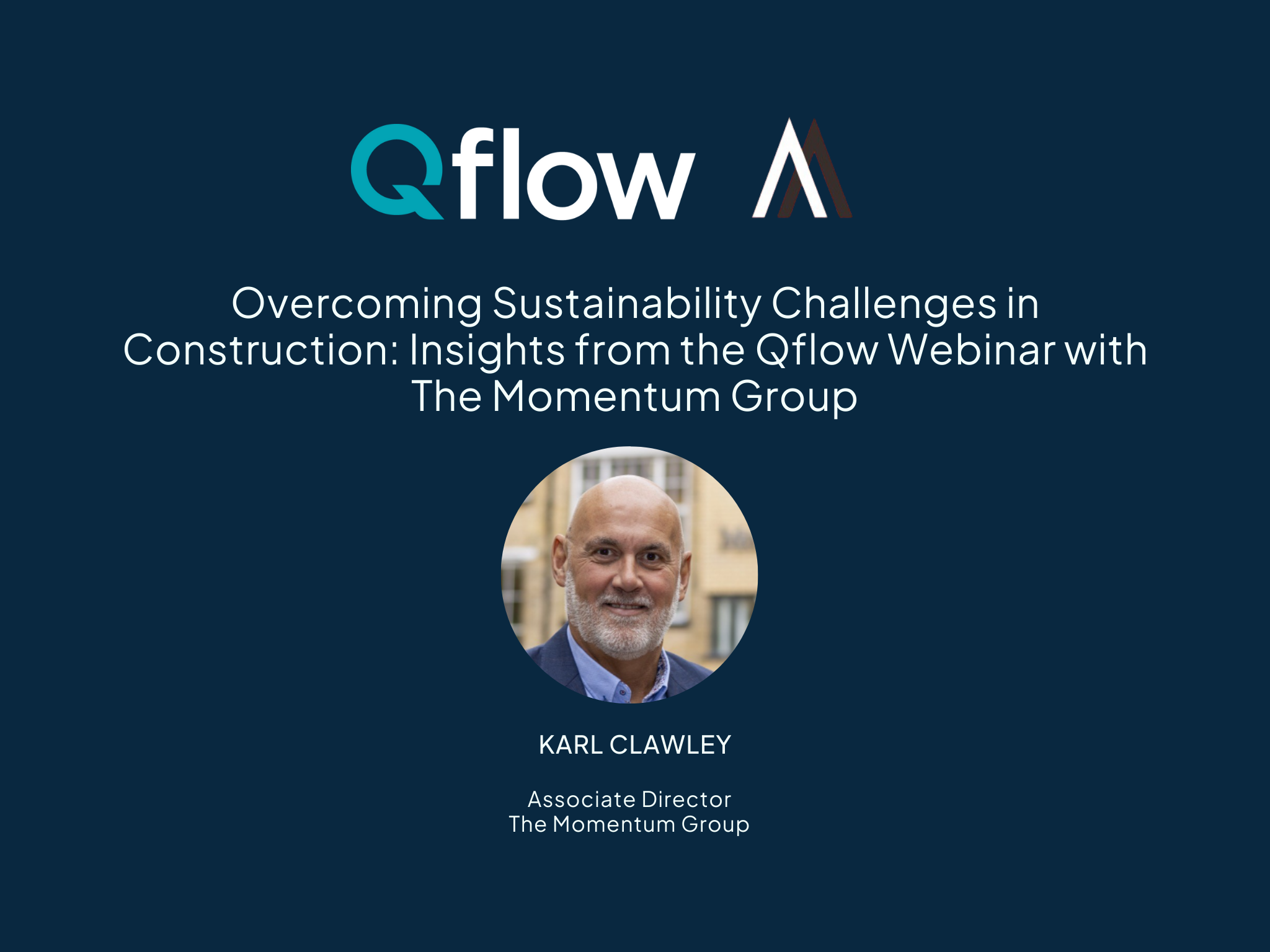Overcoming Sustainability Challenges in Construction: Insights from the Qflow Webinar with The Momentum Group
https://vimeo.com/1031856128 The construction industry is rapidly embracing sustainability as a core value, reshaping traditional practices to meet environmental, social, and governance (ESG) goals. In a recent webinar, Qflow hosted Karl…










